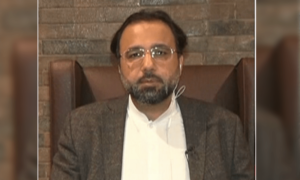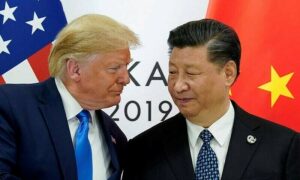• Five justices file representation, say seniority should be determined from date of new oath
• Justice Kayani loses another coveted portfolio to successor Justice Dogar
ISLAMABAD: The Islamabad High Court judges approached Chief Justice of Pakistan Yayha Afridi and IHC Chief Justice Aamer Farooq to reclaim their seniority in light of changes to the ranking following the transfer of new judges, particularly Justice Sarfraz Dogar from the Lahore High Court who became the senior puisne judge replacing Justice Mohsin Akhtar Kayani.
Besides losing his coveted position, Justice Kayani lost his representation in the Departmental Promotion Committee and the Administration Committee on Monday. In another order on Tuesday, the judge was stripped of the Inspection Judge of the Special Courts position.
A notification issued by the high court administration following the CJ’s approval stated that the charge had been assigned to Justice Dogar. Justice Dogar was appointed as LHC judge in June 2015, while the date of the appointment of Justice Kayani is Dec 23, 2015.
The administration also revised its seniority list and the changes were implemented after receiving approval from Chief Justice Farooq, with separate notifications issued by the registrar’s office.
The updated seniority list is as follows: Justice Dogar, Justice Kayani, Justice Miangul Hassan Aurangzeb, Justice Tariq Mehmood Jahangiri, Justice Babar Sattar, Justice Sardar Ejaz Ishaq Khan, Justice Arbab Muhammad Tahir, Justice Saman Riffat Imtiaz, Justice Khadim Hussain Soomro, Justice Mohammad Azam Khan, Justice Mohammad Asif and Justice Inaam Ameen Minhas.
Before these transfers, five out of 10 IHC judges had penned a strongly worded letter to the president and the CJP besides other high courts’ chief justices, opposing these transfers.
On Tuesday, these judges sent a representation to the chief justice of the IHC and CJP Afridi against placing them down on the seniority list.
A central concern raised by the judges was that a transferred judge would be required to take a fresh oath under Article 194, which would place them at the bottom of the seniority list within the IHC.
This would render them ineligible for immediate consideration for the CJ’s position, contradicting the Judicial Commission of Pakistan’s (JCP) Appointment Rules 2024, which mandated that the chief justice of a high court must be appointed from among the three senior-most judges of that court.
According to the representation submitted by the judges, a judge takes an oath for the high court in which they are appointed. It further emphasised that according to the constitutional intent, a judge must take a fresh oath when transferred to another high court.
Based on this principle, the seniority of a judge transferred to another high court should be determined from the date of their new oath.
The judges clarified that their representation strictly concerned the seniority issue and was unrelated to the transfer of judges.
The development, however, sparked discussions within the legal community regarding judicial appointments and seniority criteria.
According to legal experts, since the appointing authority of the judges was the President of Pakistan, the judges could approach him for the redressal of their grievances.
They also believed that a judge could file the representation individually, as there was no concept or law for seeking to resolve any dispute related to service matters through a combined representation.
Published in Dawn, February 5th, 2025
- Desk Reporthttps://foresightmags.com/author/admin/











